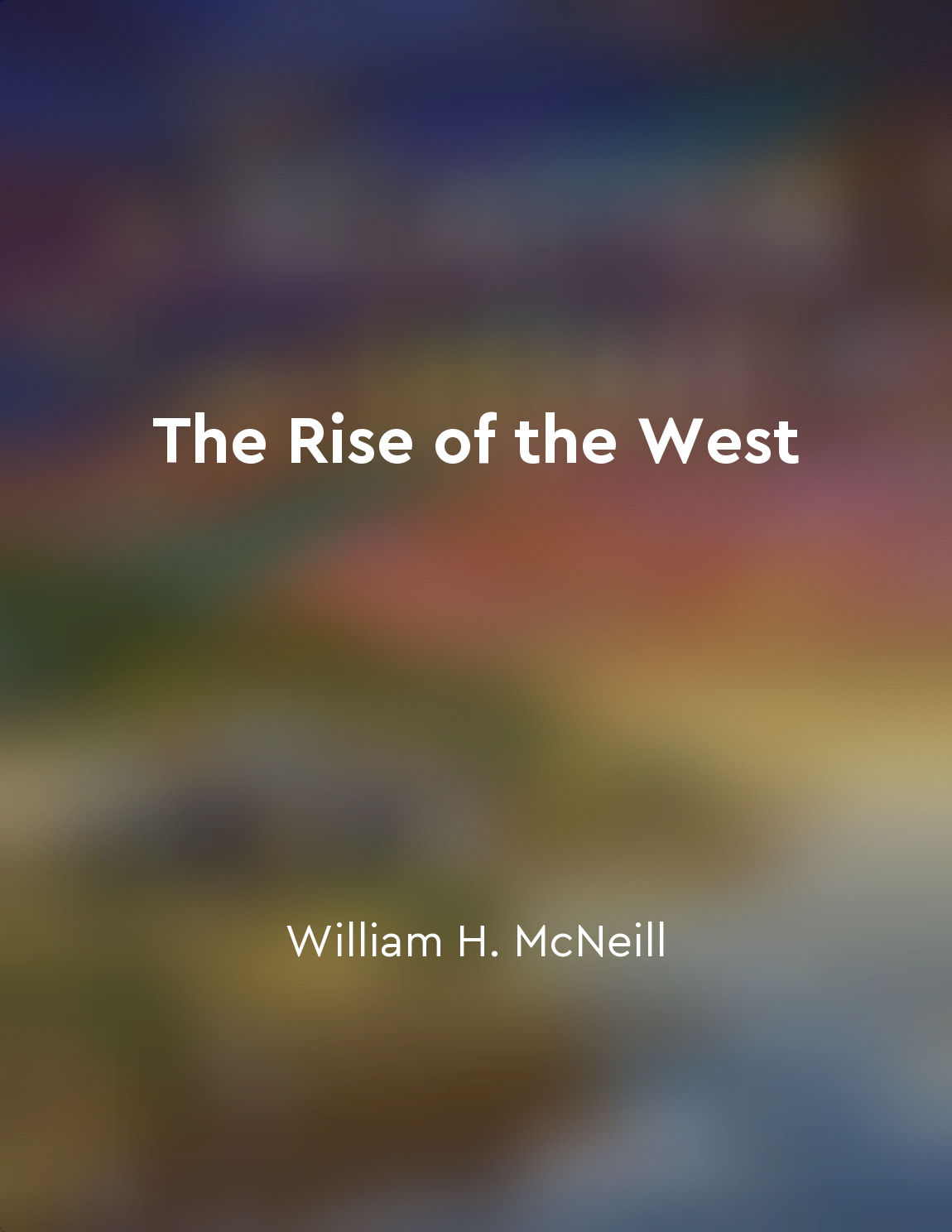Religious and philosophical beliefs influence societal values from "summary" of The Rise of the West by William H. McNeill
Throughout history, the beliefs and philosophies of a society have played a crucial role in shaping its values and norms. Religion, in particular, has been a powerful force in influencing the moral and ethical standards of communities. The Rise of the West by William H. McNeill explores how religious and philosophical beliefs have impacted societal values, leading to significant changes in the way people think and behave.
One of the key ways in which religious beliefs influence societal values is through the promotion of certain moral principles. For example, Christianity has played a central role in shaping Western values such as compassion, forgiveness, and charity. These values have helped to create a sense of community and solidarity among believers, leading to the development of social norms that prioritize the well-being of others.
Similarly, philosophical beliefs have also had a profound impact on societal values. The teachings of philosophers such as Plato, Aristotle, and Confucius have influenced the way people think about ethics, justice, and the nature of reality. These ideas have shaped the moral fabric of societies, guiding individuals in their decision-making and interactions with others.
In addition to moral values, religious and philosophical beliefs have also influenced societal attitudes towards various aspects of life, such as politics, education, and the environment. For example, the Protestant Reformation in Europe had a significant impact on the development of democratic principles and individual freedoms. The teachings of Martin Luther and John Calvin emphasized the importance of personal responsibility and the right to challenge authority, laying the groundwork for modern democratic societies.
Furthermore, religious beliefs have also shaped societal views on education and knowledge. In many cultures, education was closely tied to religious institutions, with religious texts serving as the foundation of learning. These beliefs have influenced the way people approach education, emphasizing the importance of moral and spiritual growth alongside intellectual development.The influence of religious and philosophical beliefs on societal values cannot be overstated. These beliefs have shaped the moral, ethical, and intellectual foundations of societies, guiding individuals in their interactions with others and their understanding of the world. By examining the role of religion and philosophy in shaping societal values, we can gain a deeper appreciation for the ways in which ideas and beliefs have shaped human history.

Open in app
The road to your goals is in your pocket! Download the Oter App to continue reading your Microbooks from anywhere, anytime.


